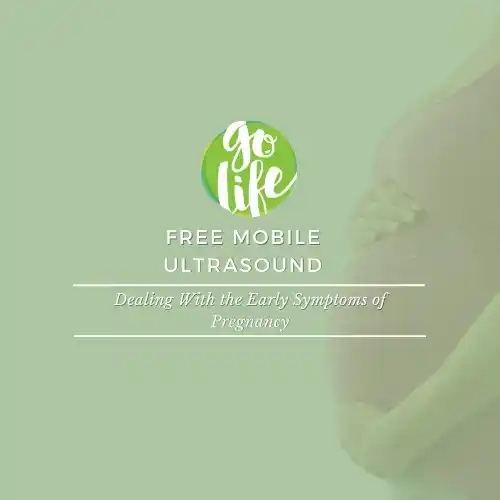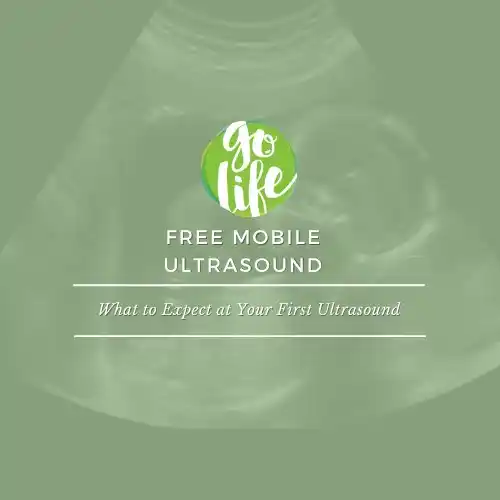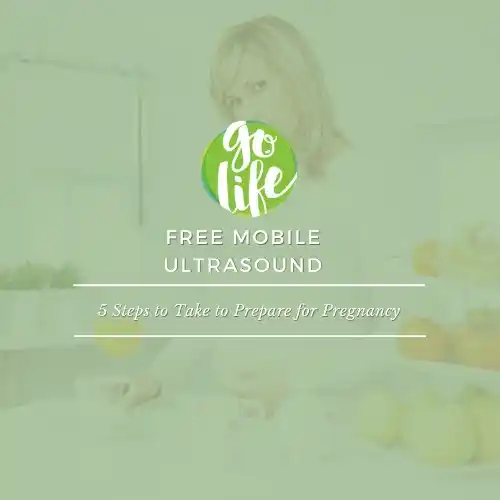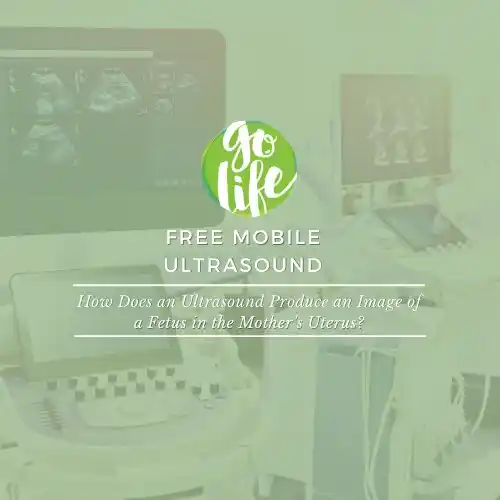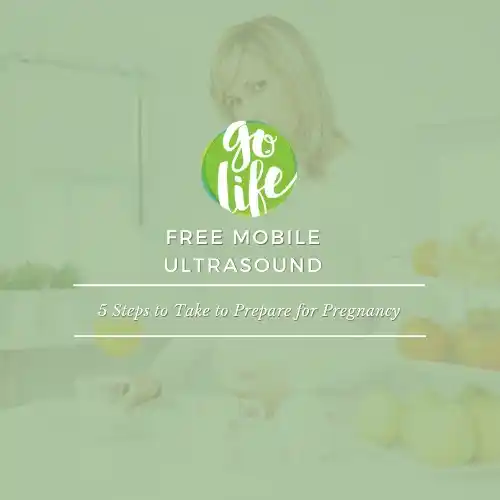Ultrasound and Sonogram: What Are My Ultrasound Options?
Types of Sonograms
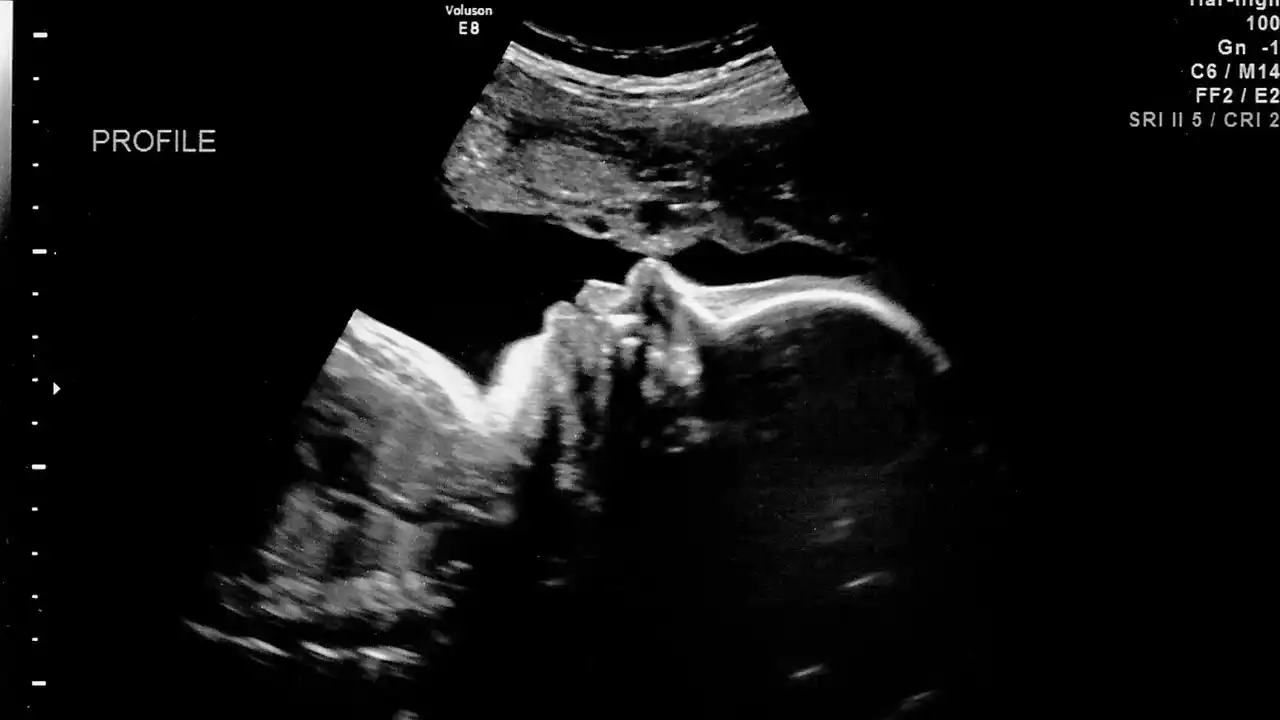
Standard Ultrasound
A standard ultrasound is preformed using a transducer which a sonographer places on your abdomen to create a two-dimensional image of your baby.
Advanced Ultrasound
For the most part, this procedure is the same as a standard ultrasound, except it requires sophisticated equipment and designed to target a potential problem.
3D Ultrasound
This variant can create three-dimensional images of your unborn child with probes and software specially designed for this ultrasound.
4D Ultrasound
A 4D ultrasound can let you view your unborn child’s face and movements before it is born.
The ultrasound is a procedure most expecting mothers will have heard about. A sonographer uses a device which generates high-frequency sound waves, and scans the pregnant woman’s abdomen to generate a picture of the unborn child and placenta.
This picture is called a sonogram.
One question which you might be having, however, is what are your ultrasound options?
Types of Ultrasounds
In general, there are seven types of ultrasounds. While each has its own variances, the process of performing them is roughly the same.
Your Tulsa ultrasound options include:
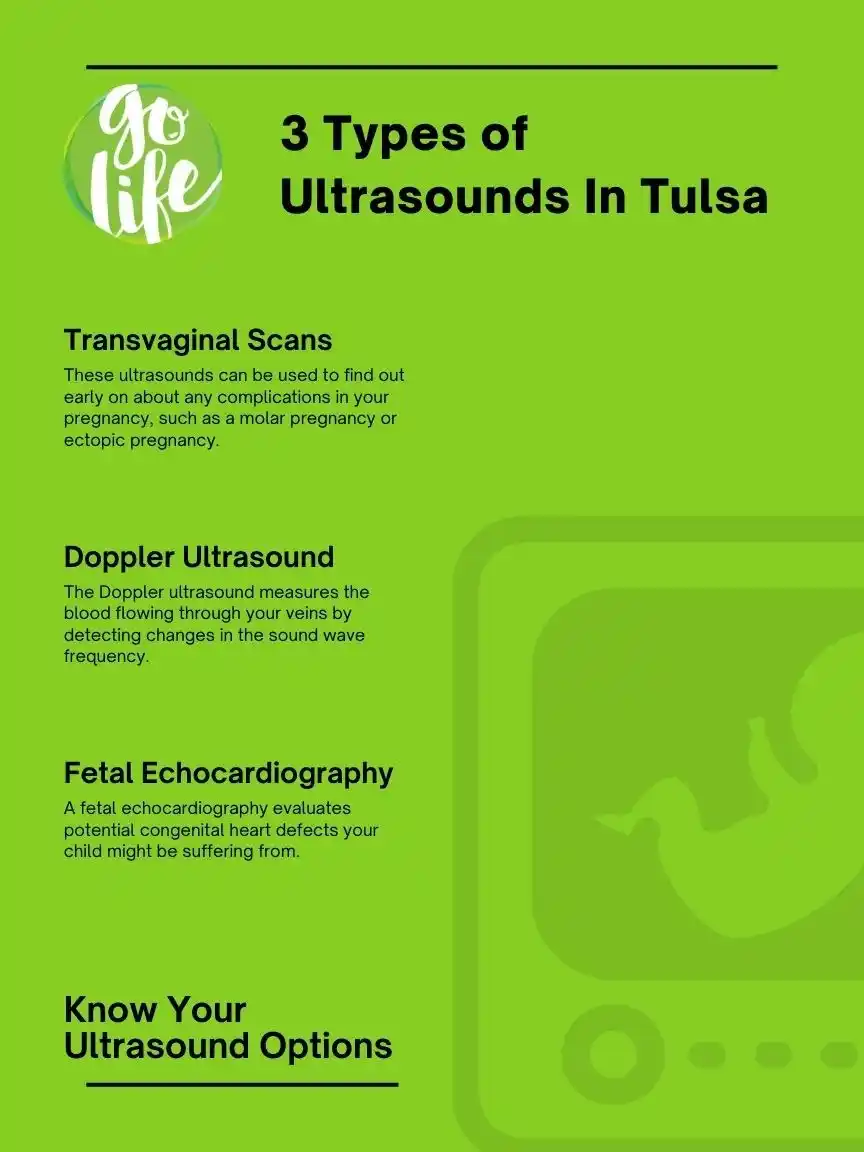
Transvaginal Scans
Early in your pregnancy, a sonographer can use probe transducers placed in the vagina to create sonograms. These ultrasounds can be used to find out early on about any complications in your pregnancy, such as a molar pregnancy or ectopic pregnancy.
Doppler Ultrasound
The Doppler ultrasound measures the blood flowing through your veins by detecting changes in the sound wave frequency.
Fetal Echocardiography
A fetal echocardiography evaluates potential congenital heart defects your child might be suffering from.
How an Ultrasound Works
Ultrasounds are preformed using gel (to help conduct sound waves), and a transducer. A Tulsa sonographer will place a transducer on your abdomen which will generate sound waves.
These sound waves will bounce off any objects they encounter (such as your unborn child), a return to the transducer. This generates an image of your child. Think of it like sonar.
When Are Ultrasounds Performed?
You can undergo an ultrasound during any stage of your pregnancy, and see immediate results. There are no recommended amounts of ultrasounds for pregnant women, since ultrasounds aren’t a necessity for a healthy pregnancy.
If you suspect something is wrong, you should have an ultrasound to make sure everything is okay.
You can have as many or as few as you want (though it’s recommended to only get them if medically needed), and we highly recommend having an ultrasound, so that you can see the life developing in your womb.
Things an Ultrasound can Detect
Whether detecting abnormalities, or just showing the mother an image of the fetus, ultrasounds are important. If it finds something suspicious, other tests are preformed to confirm its diagnosis.
The following are some of what the ultrasound looks for:
First Trimester
- Confirmation of a heartbeat
- Confirmation of a viable pregnancy
- Measurement of the gestational age
- Measurement of the crown-rump length
- Confirmation of ectopic pregnancies or molar pregnancies
- Assessment of abnormal gestation
Second Trimester
- Diagnosis of fetal malformation
- Signs of Down syndrome (by 13 to 14 weeks)
- Congenital heart defects (by 18 to 20 weeks)
- Structural abnormalities
- Confirmation of a multiple pregnancy
- Verification of growth
- Confirmation of stillbirth (clinically known as intrauterine death)
- Identification of high levels of amniotic fluid or low levels of amniotic fluid (AKA hydramnios or oligohydramnios)
- Evaluation of the unborn child’s well-being
Third Trimester
- Placental location
- Confirmation of stillbirth
- Fetal presentation
- Movements made by the unborn child
- Identification of any abnormalities in the mother’s uterus and pelvis
How Safe is an Ultrasound During Pregnancy?
Research shows ultrasounds to be safe for mothers and their unborn children if preformed properly. If you want more information on the side effects of ultrasounds, read more about ultrasound safety.
Ultrasound Questions
-
I had an ultrasound at six weeks. No heartbeat. Is this bad?
No, and there are several reasons why your child’s heartbeat isn’t detected, such as:
•Large abdomen
•Tipped uterus
•Inaccurate menstrual period dating
Early in the pregnancy, you can hear the heartbeat with a transvaginal ultrasound.
There is only cause for alarm if the length of your child’s crown-rump exceeds 5 mm, or if 6 weeks have passed and there are no signs of a gestational sac.
-
What is the accuracy of ultrasounds in determining gestational age and conception date to determine paternity?
What is the accuracy of ultrasounds in determining gestational age and conception date to determine paternity?
There are several factors which help determine gestational age, including when you last menstruated, your blood’s hormone levels, and, indeed, ultrasound results.
In short, while there are some factors which can throw off the accuracy, an ultrasound certainly can help you have a general idea of gestational age.
These can also be used to help determine conception date.
One of the limitations of ultrasound, however, is determining paternity since the listed conception date can be off by about seven days.
-
My healthcare provider scheduled my ultrasound differently. Why?
More ultrasounds might be required in cases of complications or questions of gestational age.
-
Can an ultrasound determine gender at 18 weeks?
Around 18-20 weeks into your pregnancy, yes, but several factors can affect the accuracy of the ultrasound’s prediction of your child’s sex.
-
Are ultrasounds necessary?
Yes, but only in cases of medical concern. With that said, you can still have an ultrasound to verify life in the womb, or to learn information such as gestational age or your child’s sex.
